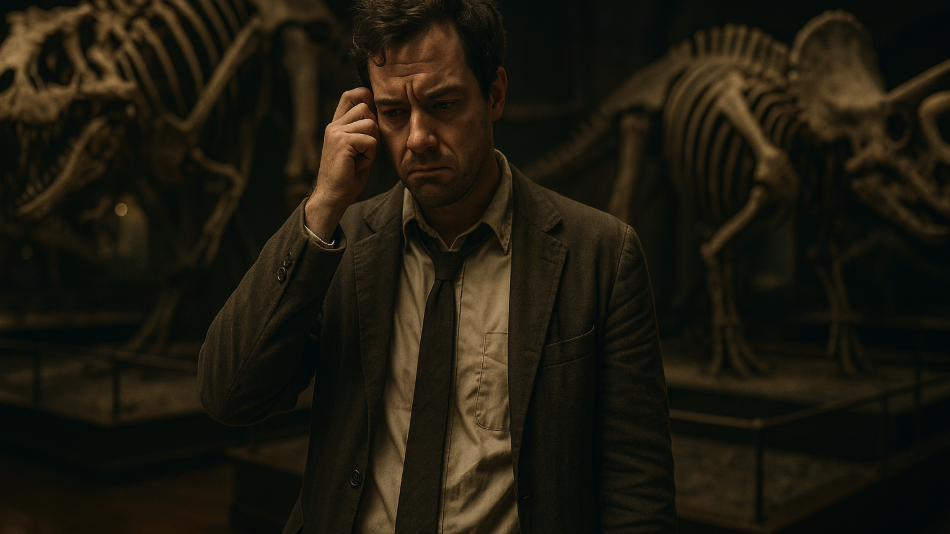How Friends teaches us to embrace flaws is a powerful lesson that resonates with viewers even years after the show’s finale. At the heart of this iconic sitcom lies a group of imperfect, quirky individuals who, despite their flaws, create lasting friendships and find happiness. Whether it’s Ross’s jealousy, Monica’s perfectionism, or Chandler’s insecurities, each character’s flaws are not only accepted but celebrated. These imperfections allow the characters to grow, learn, and connect with one another on a deeper level. In this article, we’ll explore the life lessons Friends teaches about embracing our own flaws and the power of self-acceptance in building stronger, more meaningful relationships.
The Realness of the Characters
One of the most compelling aspects of Friends is the raw, authentic portrayal of its characters. Each member of the group has their own set of flaws, which makes them incredibly relatable. From Ross’s constant jealousy to Monica’s obsession with perfection, the characters are far from perfect. However, it’s their imperfections that make them so real and endearing.

Embracing Imperfection
Friends shows us that everyone has flaws, and that’s okay. The characters’ struggles with jealousy, insecurity, and control reflect the challenges many people face in real life. Rather than hiding these flaws, the show allows them to be seen and understood. This openness teaches viewers to embrace their own imperfections, realizing that it’s these very flaws that make us unique.

Stronger Bonds Through Flaws
The beauty of Friends is how the characters’ flaws don’t drive them apart; instead, they bring them closer together. Despite their differences, they accept each other for who they are. This acceptance forms the foundation of their strong, unbreakable friendships. The show proves that when we accept our own and others’ flaws, we create deeper, more meaningful connections.
In embracing flaws, Friends gives us a powerful reminder: it’s okay to be imperfect, and it’s those imperfections that often form the strongest bonds.
Ross and Rachel – Learning from Mistakes
Ross and Rachel’s relationship is full of ups and downs, making them one of Friends’ most memorable couples. Their flaws and mistakes provide key lessons on personal growth and self-improvement.
Ross’s Jealousy and Insecurity
Ross’s constant jealousy, especially over Rachel’s relationships, stems from his deep insecurities. While this trait causes tension, it also shows how personal flaws can impact relationships. Over time, Ross learns to confront these insecurities and grow. His journey teaches us that acknowledging our flaws and working to improve them is crucial for any relationship to thrive.
Rachel’s Journey to Independence
Rachel starts as a dependent, spoiled woman but gradually learns to stand on her own. Her growth from relying on others to becoming a strong, independent person is a testament to the power of self-acceptance and change. Her mistakes, like poor career decisions, teach viewers that failure is part of growth and that embracing mistakes leads to personal development.
Together, Ross and Rachel’s relationship teaches us that mistakes aren’t the end but rather opportunities to learn, grow, and become better versions of ourselves. Embracing our flaws—and those of others—helps build stronger, more resilient relationships.

Monica and Chandler – The Power of Self-Acceptance in Relationships
Monica and Chandler’s relationship is a powerful example of how self-acceptance can strengthen a partnership. Both characters have their flaws, but they learn to embrace them, creating a healthier and more supportive relationship.
Monica’s Perfectionism
Monica’s obsession with control and perfection often causes stress and frustration in her life. However, her relationship with Chandler teaches her to relax and accept that things don’t always have to be perfect. This journey of self-acceptance shows viewers that it’s okay to let go of the need for perfection and that true happiness comes from embracing imperfections.
Chandler’s Humor and Insecurity
Chandler uses sarcasm and humor as a defense mechanism, often hiding his insecurities. Through his relationship with Monica, Chandler learns to open up and be vulnerable. Monica’s unconditional support helps him accept his flaws and realize that being authentic is more important than hiding behind humor.
Together, Monica and Chandler’s growth shows us that accepting our flaws—both individually and within a relationship—builds a stronger, more loving bond. Their journey highlights how true self-acceptance leads to deeper connection and happiness in any relationship.

Phoebe – The Embrace of Unconventionality
Phoebe Buffay stands out as the most unconventional character on Friends. Her quirky, offbeat personality teaches us the value of embracing our uniqueness and accepting ourselves for who we truly are.
Phoebe’s Eccentricities
Phoebe’s strange behaviors and unusual perspectives make her a standout character. She never tries to fit in or follow societal norms, which makes her authentic and free-spirited. Phoebe’s character shows us that it’s okay to be different and that our quirks can be our greatest strengths.
The Power of Self-Love
Despite her eccentricities, Phoebe loves herself fully and unapologetically. She doesn’t seek validation from others and is comfortable in her own skin. Her self-acceptance encourages viewers to embrace their flaws and be proud of who they are, no matter how unconventional they may seem.
Phoebe teaches us that embracing our true selves, flaws and all, leads to a more fulfilling life. By accepting our uniqueness, we not only find self-love but also attract genuine connections with others.

The Importance of Acceptance in Friendships
One of the core themes of Friends is the power of acceptance in building lasting, meaningful relationships. The show highlights how embracing each other’s flaws strengthens friendships and creates a supportive, loving environment.
Unconditional Support
The group’s willingness to accept each other’s imperfections is key to their strong bond. From Monica’s perfectionism to Chandler’s insecurity, each character has flaws, but they are never judged. Instead, they are met with understanding and support. This acceptance shows that true friendship isn’t about perfection; it’s about being there for one another through the good and the bad.
Conflict and Resolution
Even when disagreements arise, the characters always find a way to work through their issues. They don’t let flaws or mistakes define their relationships. Instead, they embrace forgiveness and growth. This teaches us that accepting each other’s flaws leads to healthier, more resilient friendships.
Friends demonstrates that the foundation of any strong friendship is acceptance—of each other’s strengths, weaknesses, and everything in between. By embracing imperfections, we create deeper, more meaningful connections with those we care about.

The Power of Humor in Coping with Flaws
Humor plays a significant role in Friends, especially when it comes to dealing with personal flaws. The show uses humor to address serious issues, teaching us how laughter can be a powerful tool for embracing and overcoming imperfections.
Using Humor as a Defense Mechanism
Chandler, in particular, uses sarcasm and humor to mask his insecurities. While this may seem like a way to avoid vulnerability, it also helps him cope with his flaws. Over time, Chandler learns to open up and face his insecurities, showing that humor can be a helpful coping mechanism, but it’s important to address deeper issues.
Laughing at Ourselves
Phoebe’s quirky nature and willingness to laugh at herself also teach us the value of not taking ourselves too seriously. She shows that it’s okay to embrace your flaws with humor. By laughing at our imperfections, we reduce the pressure to be perfect and become more comfortable in our own skin.
Humor, when used constructively, can make it easier to accept our flaws and navigate life’s challenges. Friends reminds us that laughter is a great way to deal with imperfections and fosters a more positive outlook on life.

Practical Life Lessons We Can Learn from Friends
Friends isn’t just a source of entertainment; it’s filled with valuable life lessons that can help us embrace our flaws and improve our relationships. Here are some key takeaways:
Accept Yourself First
The characters on Friends show us that self-acceptance is the first step toward growth. By accepting our flaws, just as Ross, Monica, and the others do, we can learn to love ourselves and build more fulfilling relationships. True self-love comes from recognizing that imperfections make us unique.
Be Compassionate Toward Others
The show teaches us that accepting others’ flaws is just as important as accepting our own. The characters don’t judge each other for their mistakes and weaknesses. Instead, they offer unconditional support, showing that compassion and understanding are vital in any friendship.
Growth Is a Journey, Not Perfection
The characters’ growth throughout the series is a reminder that personal development is a lifelong journey. Embracing flaws isn’t about being perfect; it’s about learning, adapting, and growing over time. We all have room to improve, and that’s okay.
Friends reminds us that flaws are not obstacles but opportunities for growth. By embracing imperfections and supporting others in their journeys, we can build stronger relationships and lead more authentic lives.

Conclusion
Friends shows us that embracing our flaws is key to personal growth and stronger relationships. Through characters like Ross, Monica, and Phoebe, we learn that accepting ourselves and others leads to deeper connections. The show reminds us that true friendship is about support, not perfection. By embracing imperfection, we can build more meaningful relationships and live more authentically, just as the characters on Friends do.













